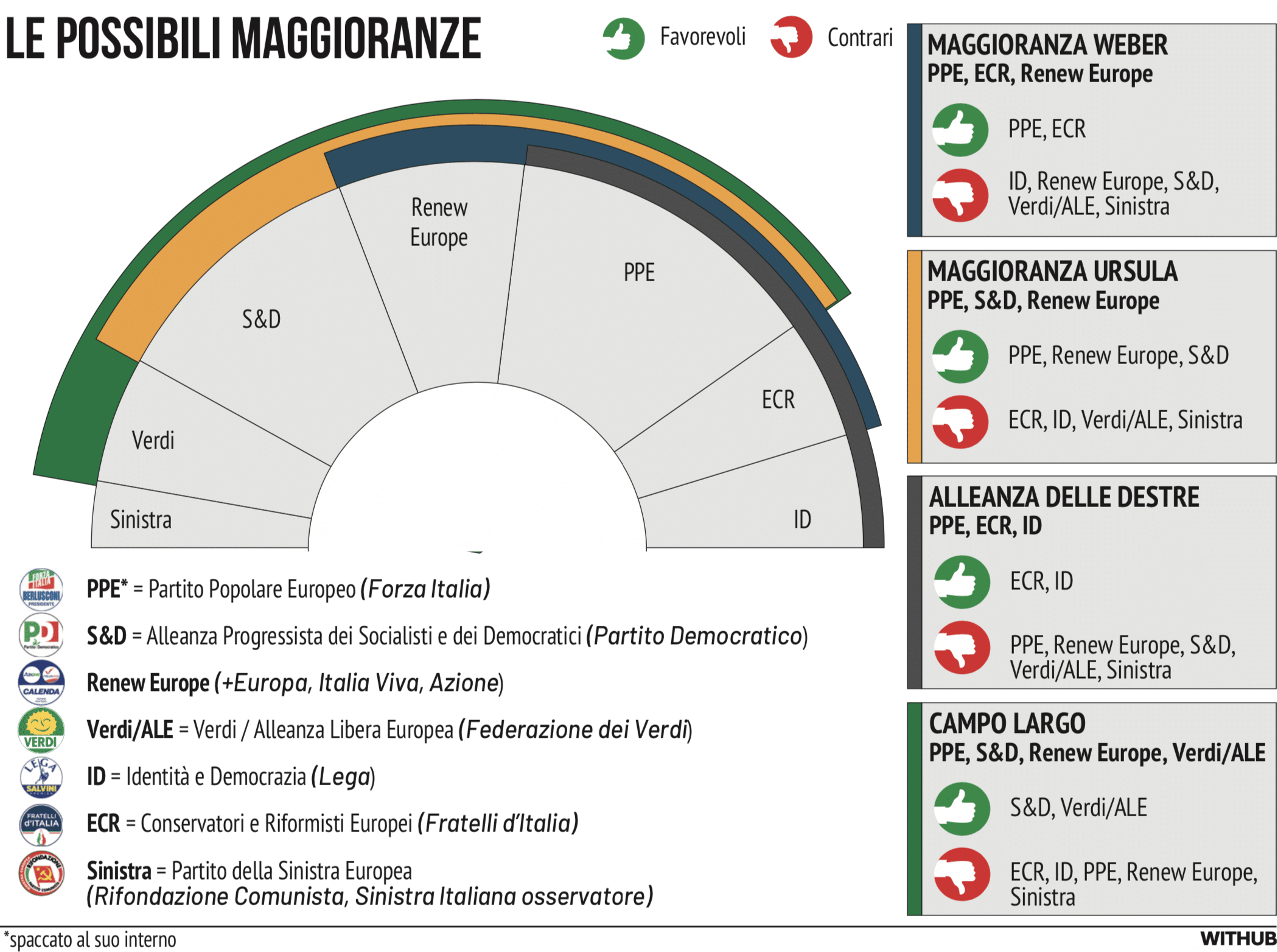Brussels – Former Polish Premier Mateusz Morawiecki endorsed the entry of Fidesz – the Hungarian party of Viktor Orbán – into the European Conservatives and Reformists (ECR) group. It is no small opening considering that the European Law and Justice (ELJ) delegation, of which Morawiecki is the leader, is by far the largest within the ECR group.
“I am not sure whether changes can occur before European elections. But after elections, I personally am open to the idea of Fidesz joining our group,” Morawiecki said during a press conference at the Euro Chamber. During the EU Parliament plenary on January 15, the spokesman of the ECR group, Michael Strauss, opened the door to Orbán’s party: “Anybody who shares our values can join,” after which entry “is a decision of the whole group once an membership application is made, but at the moment it has not come.”
A decision in which Polish conservatives will have a significant specific weight. In the ECR ranks, the PiS can count on group co-chair Ryszard Legutko and 26 MEPs out of the total 67. More than twice the second national delegation, Fratelli d’Italia, which sent 10 MPs to Brussels. 
The June 9 European elections will reveal the actual weight of the parties. But should the 12 MEPs of Fidesz – who have no home in Brussels after being expelled from the European People’s Party in 2021 – remain in office, they may become a destabilizing factor for the future balance of the European Parliament. Should they join the Conservatives, the consequences would be at least twofold: A strengthening of the current fifth group of the European Parliament (after the Populars, Socialists and Democrats, Liberals, and Greens), which is already looking forward to the probable feat of Fratelli d’Italia, and a simultaneous move away from the Populars and the much-feared alliance between the groups of the European Right (EPP, ECR and ID) to overthrow the so-called “Ursula majority” (S&D, EPP and Liberals).
English version by the Translation Service of Withub





